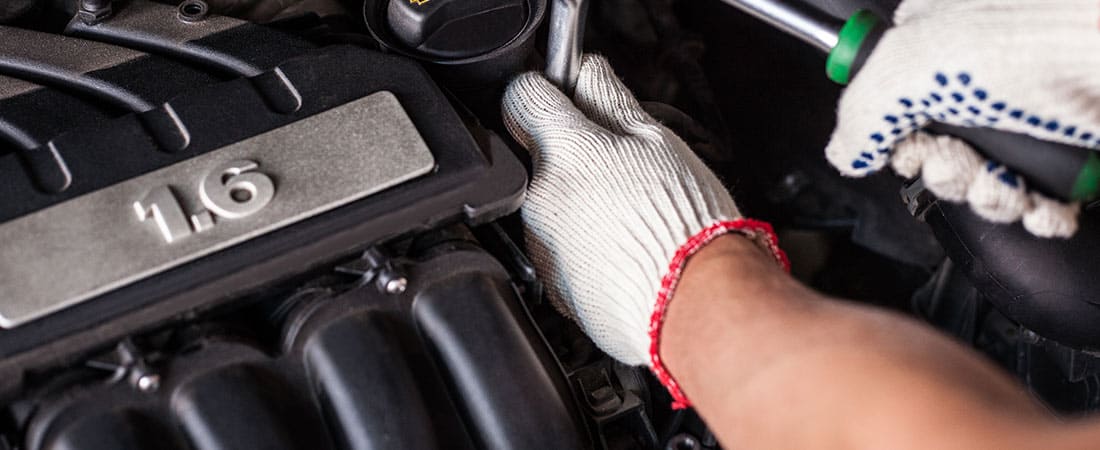Uptown is a neighborhood with a soul, known for its legendary entertainment venues like the Aragon and Riviera, its stunning lakefront access at Montrose Harbor, and its diverse, vibrant community. As a resident, you appreciate authenticity and history. When it comes to caring for your vehicle, you need a mechanic that embodies those same qualities—a shop with a proven track record of expert work and honest communication, a rare find in today’s fast-paced world.
For decades, car owners from Uptown have made Triangle Auto Repair & Service their trusted destination for quality auto care. Located just a short drive west in Old Irving Park, we are a family-owned business that has built our reputation on a simple promise since 1989: to provide dealership-level expertise with the integrity and personal attention of a neighborhood shop. We believe that peace of mind is worth the drive. To experience a higher standard of auto service, call us at (773) 539-5858.

The Trusted Auto Repair Destination for Uptown Drivers
We know that you have choices for auto repair. Our loyal customers from Uptown and across the North Side choose us because they know they will get a straightforward diagnosis, a fair price, and a repair that’s done right the first time. We pride ourselves on being the smart alternative to dealership service centers, offering the same technical capabilities without the high overhead and impersonal experience.
Your All-in-One Solution for Complete Vehicle Care
Our ASE-certified technicians are equipped to handle the full spectrum of your vehicle’s needs, from routine maintenance to the most complex repairs.
Premier Drivetrain & Engine Services
Trust our experts with the most critical components of your vehicle for long-term reliability.
- Engine Repair: We expertly diagnose and repair all engine issues, from check engine lights to major overhauls.
- Transmission Service & Repair: Ensure smooth, dependable performance from today’s complex transmissions.
- Radiators & Cooling Systems: With our founding expertise, we protect your engine from Chicago’s harshest temperatures.
Essential Maintenance for City Driving
Proactive service is the key to avoiding breakdowns and extending the life of your vehicle.
- Oil Change Service: A professional service including a multi-point health inspection for your vehicle.
- Modern Tune-Ups: Let us restore your car’s fuel efficiency and smooth performance.
Advanced Safety System Repairs
Your safety is our priority. We ensure your vehicle’s most vital systems are in perfect condition.
- Brake Service & Repair: We provide complete brake care for reliable stopping power when you need it most.
- Suspension & Steering: Regain a smooth, controlled ride, no matter the road conditions.
- Alternators & Electrical Service: We solve complex starting and charging problems with accurate diagnostics.
Comfort, Emissions & State Compliance
We handle the systems that keep your car running cleanly, quietly, and comfortably.
- Emissions Repair: We are the experts to see when your vehicle fails the Illinois emissions test.
- Exhaust System & Muffler Repair: We safely repair dangerous leaks and eliminate disruptive exhaust noises.
- Heating & A/C Repair: Drive comfortably through every hot summer and freezing winter.
Professional & Commercial Vehicle Services
Our expertise also extends to the needs of Chicago’s business community.
- Heavy-Duty Truck Repair: A reliable partner for keeping local commercial fleets on the road.
- Wholesale Parts: The professional’s choice for high-quality auto parts in the city.
Discover why drivers from all over the North Side, including Uptown, trust us with their vehicles. Call Triangle Auto Repair & Service today at (773) 539-5858.
Frequently Asked Questions for our Uptown Customers
How long does it take to get to your shop from the Uptown area?
From most parts of Uptown, we are a simple and direct drive away, typically taking only 10-15 minutes. Heading west on major streets like Lawrence, Montrose, or Irving Park Road provides an easy route to our shop in Old Irving Park.
My car is making a strange noise. Is it worth bringing it all the way to you?
Absolutely. A strange noise is your car’s way of warning you about a potential problem. Bringing it to a shop with a reputation for accurate diagnostics can save you from paying for unnecessary repairs elsewhere. We will find the true source of the problem, which makes the trip a very smart investment.
Do you provide estimates before starting work?
Yes, always. After our technicians have diagnosed the issue, we will provide you with a clear, detailed estimate and explain the recommended repairs. We will never proceed with any work until you have given your full approval. It’s a core part of our commitment to the honest, transparent service that businesses championed by organizations like Uptown United are known for.

